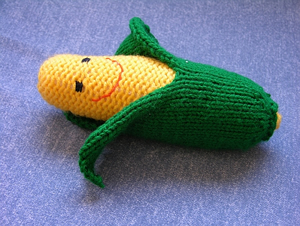September 15th, 2011 by Dinah Miller, M.D. in Opinion
No Comments »


 Please see my post on Clinical Psychiatry News and yesterday’s post What’s in a Note? along with the reader comments.
Please see my post on Clinical Psychiatry News and yesterday’s post What’s in a Note? along with the reader comments.
One reader asked why it’s weird to want to see your shrink’s notes and why shrinks refuse to show them on the grounds that they may distress the patients. Another reader asked why doctors write “patient denies” as though they don’t believe the patient. These are both great questions worthy of their own post.
Why don’t psychiatrists like to show patients their notes? Are they really going to “harm” the patient? There are a few reasons why a psychiatrist may not want to show a patient her notes. Here is my list of thoughts as bullet points. Please feel free to add to it. Read more »
*This blog post was originally published at Shrink Rap*
May 10th, 2011 by admin in Health Tips, Research
No Comments »

Calcium is good for us, right? Milk products are great sources of calcium, and we’re told to emphasize milk products in our diets. Don’t (or can’t) eat enough dairy? Calcium supplements are very popular, especially among women seeking to minimize their risk of osteoporosis. Osteoporosis prevention and treatment guidelines recommend calcium and vitamin D as an important measure in preserving bone density and reducing the risk of fractures. For those who don’t like dairy products, even products like orange juice and Vitamin Water are fortified with calcium. The general perception seemed to be that calcium consumption was a good thing – the more, the better. Until recently.
In a pattern similar to that I described with folic acid, there’s new safety signals from trials with calcium supplements that are raising concerns. Two studies published in the past two years suggest that calcium supplements are associated with a significantly increased risk of heart attacks. Could the risks of calcium supplements outweigh any benefits they offer? Read more »
*This blog post was originally published at Science-Based Medicine*
November 11th, 2008 by Dr. Val Jones in Health Tips
5 Comments »
Several people have asked me if corn syrup is the root of all evil. This cheap, high calorie sweetener is adding hidden calories to everything from spaghetti sauce to condiments to peanut butter. But is it actually worse for you than “regular” cane sugar? Is there something special about corn syrup that makes it worthy of national vilification?
The truth is that corn syrup isn’t any “worse” than any other highly refined sugar – there’s nothing special about corn that makes it harmful to consume (unless maybe if you’re allergic to corn, but that’s another story). The real issue is that we humans love sweet things, and that food product manufacturers are simply adding sweetener to their products to cater to our taste buds. In so doing, hidden calories add up… and waist lines expand in response.
Folks with diabetes understand how difficult it is to find unsweetened products these days, and they have to work extra hard to avoid the high fructose corn syrup in so many foods. For those of us who don’t have diabetes (yet?) we’d probably do well to follow their example and consciously cut down on our sugar intake if not to manage our insulin levels, but at least to avoid unnecessary calorie consumption.
I myself am a bit of a sugar addict by nature – I resolved to cut down on carbs a few months ago and have dropped 10 pounds already. I have learned to like unsweetened almond milk, unsweetened organic ketchup, and I make my own sauces and avoid refined flour products.
In my next post I’ll speak with Penny M. Kris-Etherton, Ph.D., R.D., Distinguished Professor of Nutrition, Penn State University about what she learned at the recent American Dietetic Association Food & Nutrition Conference & Expo (FNCE) in Chicago. She’ll explain why all the fear mongering about corn is a bit exaggerated.

 Please see my post on Clinical Psychiatry News and yesterday’s post What’s in a Note? along with the reader comments.
Please see my post on Clinical Psychiatry News and yesterday’s post What’s in a Note? along with the reader comments.












